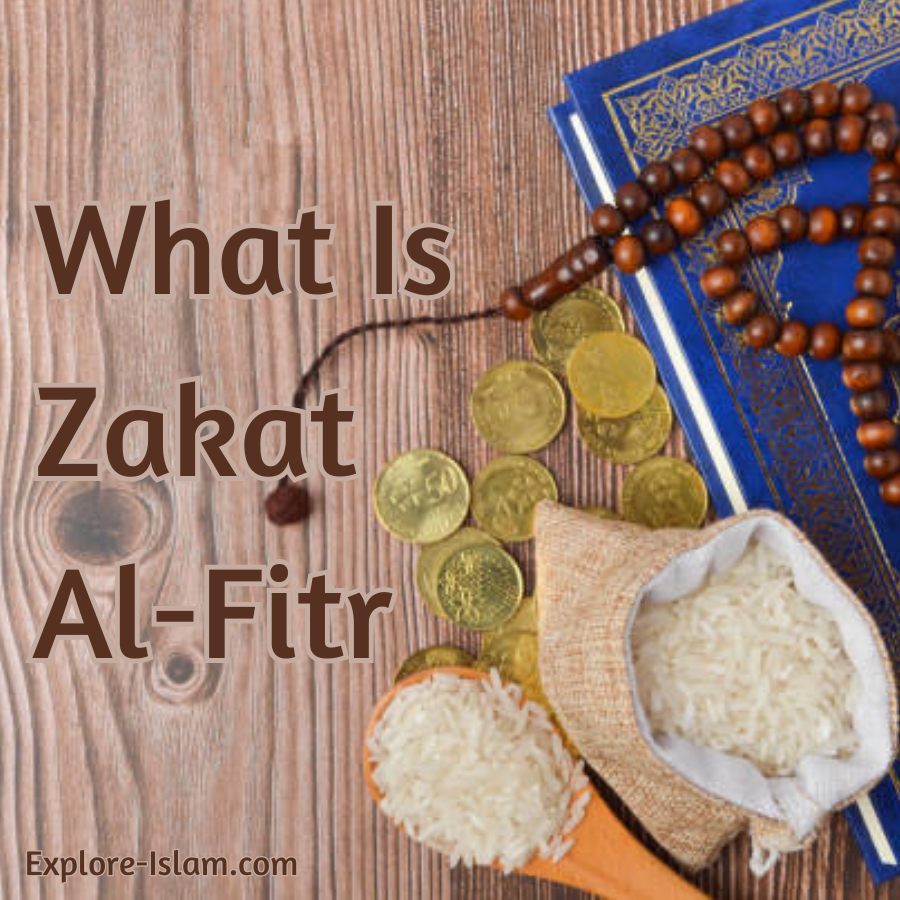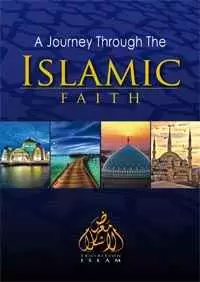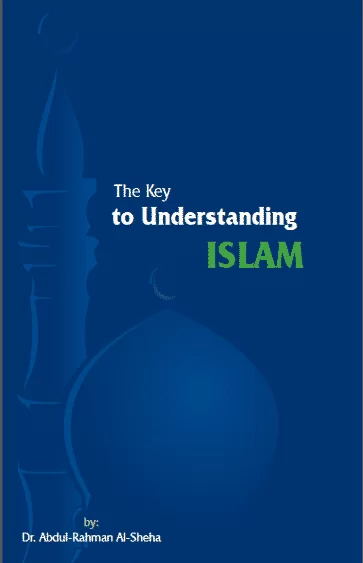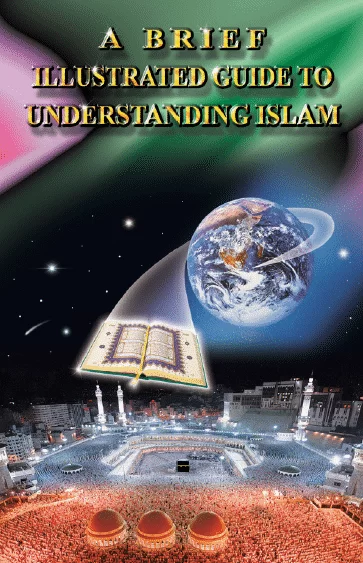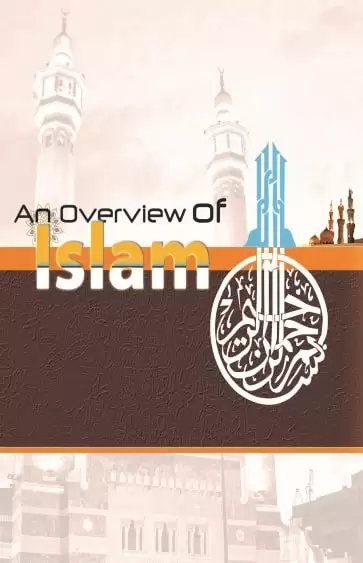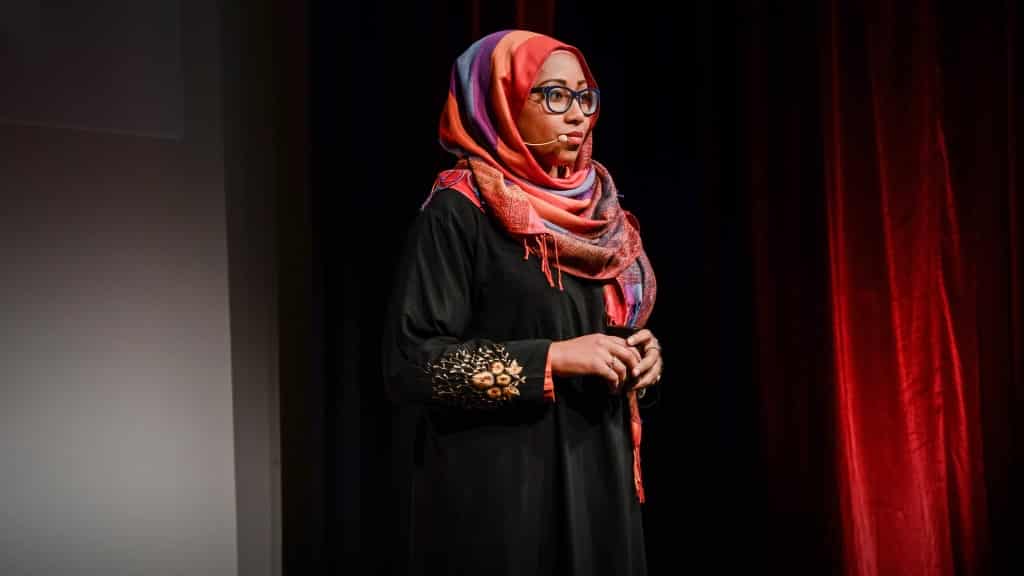In a nutshell: Islam is fundamentally a religion of peace, rooted in teachings that emphasize compassion, justice, and harmony. The Quran advocates for non-violence and reconciliation, urging Muslims to embrace peace even amidst adversity. Historically, Islam spread through peaceful means like trade and dialogue, exemplified by the Treaty of Hudaybiyyah. The Prophet Muhammad’s teachings further reinforce this ethos, promoting kindness and respect for all, positioning Islam as a beacon of peace in a diverse world.
Whether Islam is a religion of peace is a controversial issue that needs to be carefully discussed. In its core and essence, Islam does call for peace and tolerance even with those who oppose it as long as they are peaceful. But where did that idea of Islam being violent come from? We will explore this issue in more detail below.
In this article, we will provide some pieces of evidence that prove the main idea of Islam being a religion of peace. We will also tackle the reasons why Islam is called the religion of peace. Then, we will explore why some people say Islam is not a religion of peace. Finally, we will get to the most important question: Did Islam spread peacefully and how?
How Many Times Is Peace Mentioned In The Quran?
The concept of peace is central to Islamic teachings, and the specific Arabic word for peace, “salam” (سلام), appears in various forms throughout the Quran. It is mentioned explicitly over 40 times in different contexts, often emphasizing the importance of peace, compassion, and reconciliation.
In addition to the word “salam,” there are many other phrases and verses in the Quran that convey messages of peace, tranquility, and harmony. The thematic emphasis on peace is reflected in the Quran’s guidance for interpersonal relationships, conflict resolution, and the treatment of others, particularly those who do not engage in hostility against Muslims.
Is Islam A Religion Of Peace?
There are so many pieces of evidence that clearly show that Islam is a religion of peace. These include historical pieces of evidence, evidence from the Quran, evidence from the Sunnah [the teachings and practices of Prophet Muhammad (peace be upon him)], and the very greeting of Islam itself, among other proofs.
Islam is fundamentally a religion of peace, as evidenced by its core teachings that prioritize compassion, justice, and coexistence. From its inception, Muslims were instructed to practice patience and non-violence, only being permitted to defend themselves against aggression after years of persecution.
Key verses in the Quran underscore the value of reconciliation and peace, urging Muslims to embrace peace whenever it is offered and to treat all individuals with kindness.
Also, the historical context of Islamic expansion illustrates that Islam spread primarily through peaceful means, such as trade and cultural exchange, rather than through force. Events like the Treaty of Hudaybiyyah demonstrate a commitment to peaceful coexistence and dialogue.
In addition, the teachings of the Prophet Muhammad emphasize justice, mercy, and the importance of fulfilling agreements, even with those outside the Muslim community. This foundational ethos promotes a vision of Islam as a path to peace, both within communities and between different faiths.
Let’s break these Ideas down to answer this question Is Islam A Religion Of Peace?
1. Muslims were forbidden by Allah to use violence to fight the disbelievers
From the onset of Islam around 610 CE till almost the second year after Hijra, Muslims were forbidden by Allah to use violence to fight the disbelievers or even to defend themselves. They were oppressed, persecuted, and tortured for 13 years in Mecca simply for abandoning idol worshipping and choosing to worship the one true God, Allah.
So more than half of the years of the Message of Islam [23 years in total] were completely void of violence on the part of Muslims alone, and Muslims were advised to be patient and non-violent. In the Mecca era of the Message, Allah says in the Quran:
[So proclaim what you have been commanded, and turn away from the polytheists.] (Quran, 15:94)
It was not before the second year of Hijra [about 625 CE] that Allah permitted Muslims to use force to defend themselves. There are key verses in the Quran that emphasize the importance of justice and only engaging in conflict as a last resort, aimed at protecting oneself and others from harm.
So in the Madinah era, after Hijra, Allah says in the Quran:
[Permission ˹to fight back˺ is ˹hereby˺ granted to those being fought, for they have been wronged.1 And Allah is truly Most Capable of helping them ˹prevail˺.] (Quran, 22:39)
Here, the permission to “fight back” is given to the Muslims, to defend themselves and their religion.
Read also: Was Islam Spread by Sword?
2. The Quran Urges Muslims to Embrace Peace at Every Opportunity
The Quran is full of texts that urge Muslims to choose peace every time it is offered. The concept of peace is mentioned in various forms throughout the Quran. The specific Arabic word for peace, “salam – سلام” appears tens of times in different contexts. Additionally, there are other related terms and phrases that convey the idea of peace.
Overall, the theme of peace is significant in the Quran. So let’s explore some of the verses that highlight the importance of peace, justice, and coexistence.
- “وَإِن جَنَحُوا۟ لِلسَّلْمِ فَٱجْنَحْ لَهَا وَتَوَكَّلْ عَلَى ٱللَّهِ” [If the enemy is inclined towards peace, make peace with them. And put your trust in Allah.] (Quran: 8:61)
- [if they refrain from fighting you and offer you peace, then Allah does not permit you to harm them.] (Quran, 4:90)
- [The ˹true˺ servants of the Most Compassionate are those who walk on the earth humbly, and when the foolish address them ˹improperly˺, they only respond with peace.] (Quran: 25:63)
- [Allah does not forbid you from dealing kindly and fairly with those who have neither fought nor driven you out of your homes. Surely Allah loves those who are fair.] (Quran: 60:8)
These are all verses from the Quran that urge Muslims to be peaceful and not to resort to violence unless it is the only way to defend themselves and their religion.
3. Islam Respects Peace Treaties:
Caring for peace is very clear in the events of Sulah Al-Hudaybiyyah (Treaty of Hudaybiyyah – صلح الحديبية). It was a peace treaty between the Muslims of Medina, led by Prophet Muhammad (peace be upon him) and the Quraysh tribe of Mecca in 628 CE. The treaty was meant to establish a period of peace between the two groups for ten years.
In addition, the life and teachings of Prophet Muhammad (peace be upon him) clearly show his care for peace, compassion, and co-existence. In this regard, he said:
[If anyone wrongs a man with whom a covenant has been made, or curtails any right of his, or imposes on him more than he can bear, or takes anything from him without his ready agreement, I shall be his adversary on the day of resurrection.]
This is a clear invitation by the Prophet (peace be upon him) to be fair and kind to the peaceful non-Muslims.
4. The Greeting Of Islam Is Peace:
These few words of the greeting of Islam encapsulate the core values of compassion and peace that are central to Islamic teachings. When you say “As-salaam alaykum – السلام عليكم” which means “Peace be upon you,” the addressee is obliged to respond with “Wa alaykum as-salam – وعليكم السلام” (And upon you be peace).
This mutual spreading of nice words in daily interactions symbolizes a foundational value of Islam—prioritizing peace and kindness in relationships. The greeting promotes a sense of peace and tranquility among individuals. By using this greeting, Muslims express a desire for peace not just for themselves but for others, reinforcing community bonds and mutual respect.
Why Is Islam Called The Religion Of Peace?
At its core, Islam emphasizes peace, compassion, and justice, advocating for harmony among individuals and communities. There are certain factors that make Islam the religion of peace. Here are some of them.
1- Islam is peaceful because of Its Name Meaning:
“Islam” [إسلام] is derived from the Arabic root “s-l-m” [سلم] which means peace. This linguistic connection highlights the emphasis on peace in the faith and clearly shows that it is deeply rooted in its teachings and principles.
2- Islamic Core Teachings Preach Peace:
The teachings of Islam promote values such as compassion and forgiveness. The Quran and Hadith emphasize the importance of peaceful coexistence and respect for others.
In this regard, Allah says:
[Good and evil cannot be equal. Respond ˹to evil˺ with what is best, then the one you are in a feud with will be like a close friend. But this cannot be attained except by those who are patient and who are truly fortunate.] (Quran, 41:34-35)
These two verses call for tolerance and patience even with enemies. This attitude helps bring peace and harmony to any community.
3- Islam Promoting Justice Even For The War Captives:
Islam encourages justice and fairness in all aspects of life. Many verses in the Quran advocate for treating others with kindness and standing up against oppression. This applies even to war captives.
Of course, you know who a captive is! They are a military person who was a short time ago fighting you and keen to kill you, but now he is armless and in the hands of Muslims. How does Islam teach Muslims to treat their captives? Here is how:
[and give food—despite their desire for it—to the poor, the orphan, and the captive] (Quran, 76:8)
In this verse, Allah commands Muslims to feed their captives, even if they are in need of that food or desire it.
4- Islam Preaches The Rejection Of Violence:
Mainstream Islam strongly condemns violence and terrorism. Most Muslims advocate for non-violence and peace in their lives and communities. This is driven from the Sunnah of Prophet Muhammad (peace be upon him) who said:
[You must be compassionate. Whenever there is compassion in something, it adorns it, and when it is removed from something it disgraces it.] (Sahih: Al-Adab Al-Mufrad 469)
Also, the Prophet (peace be upon him) said:
[Allah is Forbearer and He loves forbearance, and rewards for forbearance while He does not reward severity, and does not give for anything besides it (forbearance).] (Riyad as-Salihin 633)
These two Hadiths clearly show that patience and forbearance are fundamental aspects of Islam, that Allah loves and rewards for.
Why Do Some People Say Islam Is Not A Religion Of Peace?
Having established with evidence that Islam is a religion of peace, now we get to the vital question: why do some people say Islam is not a religion of peace. There are some reasons for this misconception. Let’s explore them.
1- The Misrepresentation of Islam By Extremists:
High-profile acts of violence carried out by extremist groups claiming to represent Islam can give a false impression of Islam as a religion of violence. These actions often receive significant media coverage, overshadowing the beliefs and practices of the majority of Muslims who promote peace.
2- Misinterpretation Of Texts By The Non-Muslim apologeticals:
Some Islamophobes get some Quranic text out of context just to argue that certain passages in the Quran justify violence. However, many scholars emphasize that these texts must be understood in their historical and contextual frameworks. Let’s see one of the most famous examples of this issue.
It is very common to use the following verse of the Quran to attack Islam. Allah says:
[Kill them wherever you come upon them and drive them out of the places from which they have driven you out.] (Quran, 2:191)
In this verse, it is quite clear that the disbelievers are the ones who started enmity and conflict by driving the believers out of their homes. So fighting back is only an act of self-defense. Moreover, the verse before this one is:
[Fight in the cause of Allah ˹only˺ against those who wage war against you, but do not exceed the limits.1 Allah does not like transgressors.] (Quran, 2:190)
So putting the second verse in context explains why Muslims were commanded to kill those disbelievers. The reason is simply that the latter are the ones who initiated enmity by forcing the believers out of their homes and home city (Mecca).
3- Misunderstanding of Cultural And Political Contexts:
In regions where political instability exists, the name of Islam may be invoked in ways that promote violence or repression, adding to the misconception of the religion itself. Let’s take the Afghan-USSR/Afghan-USA conflicts as a case study to demonstrate this point.
Afghan-USSR Conflict Versus Afghan-USA Conflict:
During the Afghan-USSR conflict [1979-1989], it was the first time the word “Mujahedeen” [Muslim freedom fighters] was coined in English in its positive meaning of course. The conflict was between the USSR and Afghani people over Afghanistan land. The Afghanis were called by the West Mujahedeen, as the West is opposing the USSR.
However, when the USA invaded Afghanistan [2001-2021], the Afghanis resisted the invaders and thus were labeled Muslim extremists and terrorists by mainstream Western media. They are the same people, fighting for the same purpose: Freedom. But the foe has changed, so the label has changed.
4- Misunderstanding Some Seemingly Harsh Sharia Laws (أحكام الشريعة):
Some Sharia laws seem to some people, especially in the West, to be too harsh. The most common example here is the punishment for fornication. Most secular Western countries are too tolerant of adultery and homosexuality, unrealizing the evils of these vices on the community, which no one with sound reasoning can deny.
Like all the previous Messages and Scriptures sent by Allah, Islam came to preserve communities from these evils, and thus it has the law of stoning (rajm – الرجم) for fornicators who are married. It is noteworthy that this law of stoning is already there in the Old Testament which both the Jews and the Christians believe in, but not necessarily implementing.
In Islam, many difficult conditions need to be fulfilled before this punishment can be enforced ONLY by the leader. The most important of these is that there must be 4 eyewitnesses who witness the act themselves. Since this condition is too hard to fulfill, this punishment has been implemented only a few times in the history of Islam, and all of these were implemented after voluntary confession.
5- Stereotypes, Islamophobia, And Prejudice:
Long-standing stereotypes and biases against Muslims can lead to misconceptions about Islam as a whole. But the important question to ask here is: Why is Islam continuously attacked by mainstream Western media?
Islam, on the one hand, came to preserve 5 main things: faith (الإيمان), life (النفس), intellect (العقل), lineage (النسل), and wealth (المال). That’s why calling for atheism and polytheism, unjustified killing, alcohol and drugs, fornication and homosexuality, usury, gambling, etc., all of these acts are forbidden in Islam.
Since Islam is the fastest-growing religion now, especially in the West, the business of these evils is losing customers and by default losing money and power. Those business owners are the ones who control mainstream Western media. That’s why they are attacking Islam day in and day out.
Please watch this video about a lady dismantling this stereotype of Muslims being violent and untrustworthy, here.
Did Islam Spread Peacefully?
The answer is Yes. The reason is that Islam is a methodology, and ideas cannot be forced upon people and swords cannot open hearts. Let’s now see the phases of spreading Islam from the onset of the religion till the due date.
1- Peaceful Call To Allah:
From the onset of the Islamic Call in Mecca, Prophet Muhammad (peace be upon him) called for Islam peacefully for 13 years in Mecca and 2 more years in Madinah. He was only offering people the teachings of Islam and asking them to use their intellect and reflect on them.
2- Permission To Fight Back:
In Madinah, Muslims were permitted to fight those who were aggressive against them. As being too peaceful is a silent call for being oppressed. Fighting then has been for defending themselves, their children, their properties, and most importantly their newly born religion.
3- The Era After Treaty Of Hudaybiyyah – صلح الحديبية:
The Treaty Of Hudaybiyyah is often regarded as a turning point in the spread of Islam. Although the treaty appeared to favor the Quraysh initially, Prophet Muhammad (peace be upon him) did his best to accomplish it. But why did he do this?
The answer is that he knew that in a calm, peaceful atmosphere that is void of all feelings of tension and hatred, people can think rationally. So they are more likely to accept Islam and this is what actually happened. After the Treaty Of Hudaybiyyah, The number of Muslims significantly increased and more Arab tribes were more willing to come to Madinah to hear the Message of Islam.
4- The Conquest Era (الفتوحات الإسلامية):
The Conquest Era (الفتوحات الإسلامية) began just before the death of Prophet Muhammad (peace be upon him), who initially sought to invite world leaders to Islam through peaceful means.
However, the rejection of his messages required early Muslims to use force to ensure the delivery of the message, likened to a scholar fighting against powerful corporations to share a life-saving discovery.
While the Quran advocates for no compulsion in religion (Quran 2:256), the reality of the time necessitated action against those obstructing the truth. Today, the interconnected world allows Muslims to share their beliefs through modern platforms like social media and podcasts, as emphasized in a recent video urging Muslims to actively spread their message.
5- Military Powers Reverting To Islam After Getting Into Contact With Muslims In The Battlefield:
Maybe this is the most uncommon, unrepeated reason for conversion that has ever happened. During Muslim-Mongols conflicts in the 13th century, although the Mongols were victorious in most of the early conflicts, millions of Mongols reverted to Islam after experiencing the true values of Islam implemented by the Muslims. It is the first incident in history that a victorious army embraced the religion of the defeated party.
6- Muslim Missionary Activity:
Muslim missionaries and scholars played a crucial role in spreading Islam peacefully. They often emphasized knowledge-based practices and built strong community ties, which facilitated the acceptance of Islam in various regions.
The Peaceful Spread Of Islam In Africa
From the 7th century onwards, Islamic missionaries traveled across the Sahara and along the coasts of East and West Africa, introducing Islamic teachings to local communities. This peaceful diffusion contributed significantly to the establishment of huge Islamic empires, such as the Mali and Songhai empires in West Africa.
7- Trade And Cultural Exchange:
Many early Muslims were merchants who spread Islamic teachings through trade. Areas like Southeast Asia, where Islam spread significantly through trade routes, often adopted the religion peacefully as traders engaged with local populations who experienced their good manners as well as the great teachings of Islam.
The largest Muslim-majority country by population, Indonesia, is living evidence of the peaceful spread of Islam through trade. There, Islam was a new identity that helped unify diverse ethnic groups to live in harmony, brotherhood and peace.
Read: The Spread Of Islam Through Trade: How Did Trade Spread Islam?
8- Internet And Mass Media:
Now, Internet and mass media platforms facilitate conversations between different faith communities, promoting understanding and reducing misconceptions about Islam. Islamic scholars and speakers create podcasts and YouTube channels to discuss various aspects of Islam, contributing to greater acceptance and understanding in multicultural societies.
These are some accessible resources about Islam on the Internet:
The Muslim Lantern: https://www.youtube.com/@TheMuslimLantern
Mohammed Hijab: https://www.youtube.com/@MohammedHijab
Smile to Jannah: https://www.youtube.com/@smiletojannah
SCDawah: https://www.youtube.com/@scdawah
Why Have Not Muslim Countries Changed Their Religion?
If Islam spread by force, why haven’t Muslim countries adopted the religions of their Western conquerors? For example, why didn’t Egyptians embrace Anglicanism after 70 years of British rule or Algerians convert to Roman Catholicism after 130 years of French colonization? The answer lies in the fact that conquests without worldly benefits are simply invitations to explore new cultures. Islam, being inherently rational and aligned with human nature, allows for acceptance through genuine engagement.
If Islam is spread by the sword, Why Is It the fastest-growing religion?
If Islam were spread by force, why has it become the fastest-growing religion since 1997, especially in challenging times? In the West, traditional faiths are declining in favor of Islam or atheism. Furthermore, why haven’t weak Muslim nations abandoned their faith? The answers highlight a profound truth: Islam is fundamentally a religion of peace.
Read also: 8 Reasons Why You Should Be a Muslim?
Conclusion
In conclusion, Islam is often regarded as a religion of peace due to its foundational teachings that emphasize compassion, justice, and the sanctity of life. The core principles of the faith advocate for harmonious relationships, mutual respect, and community welfare, even for the non-Muslims who do not oppress Muslims or try to make them leave Islam.
Throughout the history of the Muslim Ummah, the emphasis on dialogue, mutual respect, and understanding has allowed Islam to resonate with diverse populations and communities. Today, this legacy continues as millions around the world embrace Islam, drawn by its message of peace and harmony.
Curious to learn more about Islam and how it spreads? Subscribe to Explore Islam newsletter to access new articles tailored to your interests!








